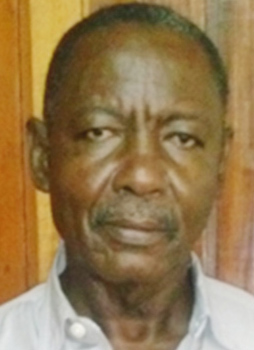The government’s recent announcement of unilateral pay hikes for public servants for a third straight year has cast its campaign trail commitment to collective bargaining in doubt and veteran trade unionist Lincoln Lewis is urging unions to fight the necessary fight to keep the administration accountable.
President of the Guyana Public Service Union (GPSU) Patrick Yard on Friday declared that what the David Granger-led government has engaged in since taking office can in no way be referred to as collective bargaining.
“The entrenched official disregard for the principle of collective bargaining remains a reality, and the take-it-or-leave-it underpinning that has customarily informed wages and salaries negotiations remain in vogue,” he told reporters at a press conference. He added that the reality is “the same deliberate non-negotiable imposition and a blatant refusal to conduct negotiations in accordance with an agreed agenda.”

Yarde made this statement in response to government’s unilateral decision to offer public servants a tiered increase. This is the third year the government has made such an offer, which it has labelled final, despite its promises of a new approach while APNU+ AFC was on the campaign trail.
On May 1, 2015, then opposition presidential candidate David Granger told workers at a May Day rally that should the coalition be elected, they would no longer be forced to accept a “lil freck at the of the year” but instead would see their respective unions engaging in collective bargaining for mutually-accepted agreements.
He went on to “guarantee that [the coalition] will stand behind unions so that unions can sit down with employers and restore collective bargaining… it is back to the bargaining table; that is what APNU+AFC will give you. No more frecks!” he told the exuberant crowd, which chanted, “No more 5%.”
Two years and five months later, the unions are crying foul. One of those unions, the Guyana Teachers’ Union (GTU) actually went as far as to call on its members to strike this week. That strike action has been put on hold pending the outcome of a meeting between the union and Granger, after the Ministry of the Presidency intervened on Friday.
The sugar workers’ unions have also cried foul over the failure of the administration to honour collective bargaining agreements in its treatment of workers during the implementation of plans to restructure the Guyana Sugar Corporation.
‘We have to hold them accountable’
Lewis, the General Secretary of the Guyana Trade Union Congress, told Sunday Stabroek that he has “not seen any effort by the government to really engage in collective bargaining.” Instead, he noted that it has continued the imposition of wages and salaries started under the previous administration.
“They talk about it but they don’t negotiate in good faith. Neither one of the… recent administrations [has] negotiated in good faith,” Lewis said.
Lewis singled out Granger and noted that he should learn from the 1999 public service strike and remember that people did not elect this government to do the same as the PPP/C. He also noted that though the APNU+AFC made workers’ rights part of its campaign platform, “you [workers] have to go out there and fight for it.”
Lewis reminded that though the major labour unions wrote the president more than a year ago—in September, 2016—asking for a meeting, they still have not been able to meet with him.
“He always refers you to the Minister [Keith Scott] but Granger is meeting the Guyana Teachers’ Union not because he likes or loves them more than any other union but because of their militancy, because they were strong enough to issue an ultimatum and this is what all the unions have to do,” he said
“Keep on course,” he urged, “keep on course, hold the employers accountable. We have to hold them accountable.”
Lewis has also urged the government to be aware of how it is abusing the trust of the electorate.
“How will I trust you when you made these promises and didn’t keep them? You have shattered the trust and that has consequences. Politicians don’t think about the consequences. Governments believe they don’t have to talk with stakeholders about anything. They feel they can come and tell you what they have decided. They always come to you and say I can’t pay, I ain’t got money but they never sit with the unions and actually talk or try to compromise. Look at 1999. The government claimed they had no money but after the strike they found it,” Lewis said.
He urged the present administration to sincerely sit and engage the unions, while reminding that when Guyana became independent in 1966, the International Labour Organisation was the first international body it joined and its conventions were among the first ratified.









